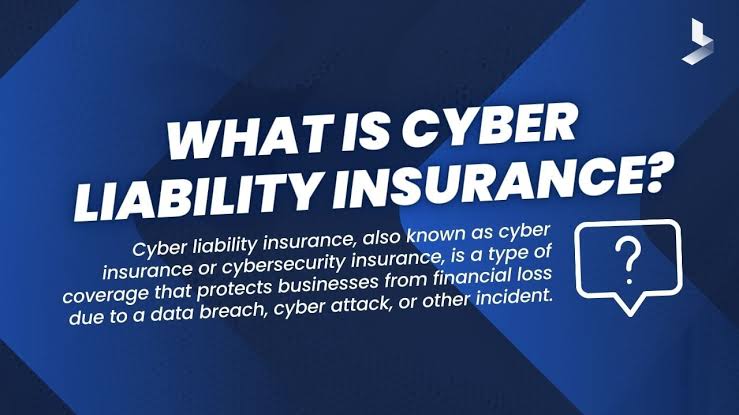Cyber Liability Insurance

Cyber Liability Insurance covers liability for a data breach in which a firm’s customers’ personal information, such as identifying details or credit card numbers, is exposed or stolen by a hacker or other criminal who gains access to the firm’s electronic network.

What is Cyber Liability Insurance?Cyber liability insurance is a specialized insurance policy designed to help businesses mitigate the risks associated with cyber incidents. These incidents can include data breaches, hacking, malware, ransomware attacks, and other forms of cybercrime. Cyber liability insurance covers the costs associated with these events, providing financial protection and support for recovery.
Key Coverages of Cyber Liability Insurance
1- Data Breach Coverage:
Notification Costs: Covers the expenses of notifying affected parties about a data breach.
Credit Monitoring: Pays for credit monitoring services for customers whose personal information has been compromised.
Public Relations: Covers the cost of hiring PR firms to manage the company’s reputation post-breach.
2- Cyber Extortion and Ransomware:
Ransom Payments: Covers the costs associated with ransom payments demanded by cybercriminals.
Investigation Expenses: Pays for professional services to investigate the source and extent of the attack.
3- Business Interruption:
Loss of Income: Compensates for income lost due to a cyber incident disrupting business operations.
Extra Expenses: Covers additional costs incurred to minimize the business interruption.
3- Legal and Regulatory Coverage:
Legal Fees: Covers the costs of legal defense in lawsuits resulting from a data breach.
4- Regulatory Fines: Pays for fines and penalties imposed by regulatory bodies due to non-compliance with data protection laws.
5- Network Security Liability:
Third-Party Claims: Covers claims from third parties affected by a cyber incident originating from your network.
Defense Costs: Pays for legal defense against liability claims related to cyber incidents.
Why Cyber Liability Insurance is Crucial
1- Increasing Frequency of Cyber Attacks:
Cyber attacks are becoming more frequent and sophisticated, posing a significant threat to businesses across all industries.
2- High Costs of Data Breaches:
The financial impact of data breaches can be enormous, including costs for remediation, legal fees, and loss of customer trust.
3- Regulatory Compliance:
Businesses must comply with various data protection regulations, such as GDPR and CCPA. Non-compliance can result in hefty fines and legal consequences.
4- Reputational Damage:
A cyber incident can severely damage a company’s reputation, leading to a loss of customers and revenue. Cyber liability insurance helps manage and mitigate these reputational risks.

Factors to Consider When Choosing Cyber Liability Insurance
Scope of Coverage:
Ensure the policy covers a wide range of cyber incidents, including both first-party and third-party losses.
Policy Limits and Deductibles:
Evaluate the policy limits to ensure they are sufficient to cover potential losses. Consider the deductible amounts and their impact on out-of-pocket .
Exclusions:
Review the policy exclusions carefully to understand what is not covered, such as certain types of cyber attacks or pre-existing vulnerabilities.Claims Handling:Investigate the insurer’s process for handling claims and their track record in settling cyber claims efficiently.
Tips for Reducing Cyber Risk
Implement Strong Security Measures:
Invest in robust cybersecurity infrastructure, including firewalls, encryption, and multi-factor authentication.
Employee Training:
Conduct regular cybersecurity training for employees to raise awareness and reduce the risk of human error.
Regular Updates and Patching:
Keep all software and systems updated with the latest security patches to protect against vulnerabilities.
Incident Response Plan:
Develop and regularly update an incident response plan to ensure a swift and effective response to cyber incidents.Regular Audits:
Conduct regular security audits and risk assessments to identify and address potential vulnerabilities.
Conclusions
Cyber liability insurance is an essential component of a comprehensive risk management strategy in the digital age. By understanding the coverage options and taking proactive steps to reduce cyber risk, businesses can better protect themselves from the financial and reputational damage associated with cyber incidents.




